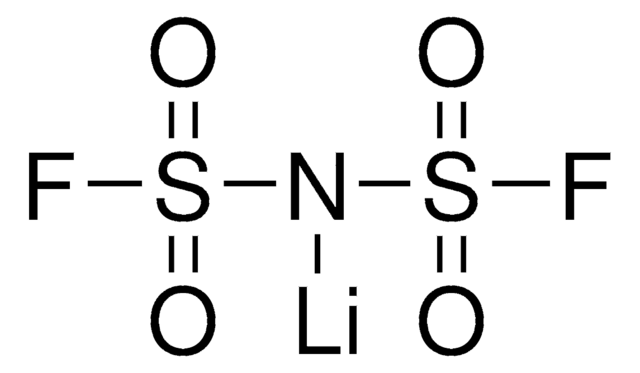933961
1,1,2,2-Tetrafluoroethyl 2,2,3,3-tetrafluoropropylether
≥99%, <=10 ppm acid, battery grade
Sinónimos:
1,1,2,2-Tetrafluoro-3-(1,1,2,2-tetrafluoroethoxy)propane, HFE-458, TTE
About This Item
Productos recomendados
grade
battery grade
Quality Level
description
Application: Battery manufacturing
assay
≥99%
form
liquid
greener alternative product characteristics
Design for Energy Efficiency
Learn more about the Principles of Green Chemistry.
sustainability
Greener Alternative Product
impurities
≤10 ppm Acid
≤100 ppm Non-volatile residue
≤750 ppm H2O
bp
92 °C
density
1.54 g/mL
application(s)
battery manufacturing
greener alternative category
Categorías relacionadas
General description
Application
signalword
Warning
hcodes
Hazard Classifications
Flam. Liq. 3
Storage Class
3 - Flammable liquids
wgk_germany
WGK 3
flash_point_f
80.6 °F - closed cup
flash_point_c
27 °C - closed cup
Elija entre una de las versiones más recientes:
Certificados de análisis (COA)
¿No ve la versión correcta?
Si necesita una versión concreta, puede buscar un certificado específico por el número de lote.
¿Ya tiene este producto?
Encuentre la documentación para los productos que ha comprado recientemente en la Biblioteca de documentos.
Nuestro equipo de científicos tiene experiencia en todas las áreas de investigación: Ciencias de la vida, Ciencia de los materiales, Síntesis química, Cromatografía, Analítica y muchas otras.
Póngase en contacto con el Servicio técnico








